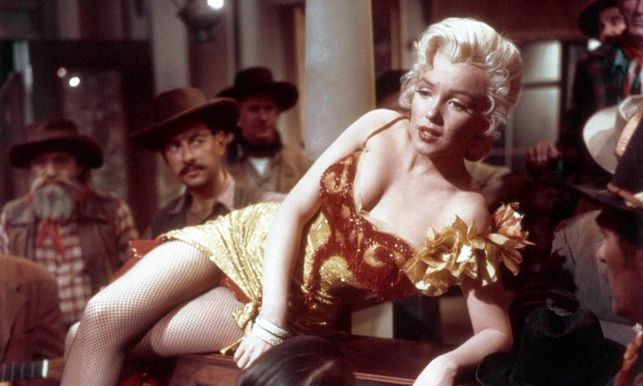In celebration of International Women’s Day on March 8th, we took a closer look at the role that women have played in the film industry. We are seeing an increasing number of women in the publicity sector, expressing their dismay at the role of women in film and the challenges they face in breaking the glass ceiling and securing positions of merit.
An introduction to gender roles
A person’s worth should be measured by their level of skills and competencies (biological factors) and not on the basis of cultural norms (such as customs and habits), as is frequently the case in today’s society. Consequently, we find ourselves in a constant state of homogenization, with regard to individual identity, unable to use our virtues or abilities – what makes us unique – to stand out from the crowd.
Sandra Bem, an American psychologist known for her work on androcentrism and gender studies, developed the gender schema theory, with which she was able to state that “assigned sex is not at the core of individual identity”, the only thing that unifying roles and gender produces is a blockage in personal growth.

Source: eldiario.es
Women in the film industry
Historically, women integration in the film industry hasn’t exactly been an easy task. Women’s role in cinema could be summed up in just one headline: “The perception that women are objects of desire.” We know this is not currently the case, yet it often feels like it is. Women are doing secondary and administrative tasks, despite the fact that men and women are equally equipped to carry out the same tasks.
The big screen has traditionally been led by an attitude of androcentrism, characterized by the distinction that men make of reality among themselves, while they pigeonhole women, perceiving them as deviations from masculinity, from what is considered universal.
This is why the film industry has always been interpreted from a male point of view, ignoring the female one. In fact, it seems that much of the film industry revolves around men (with historians only having told the story from the male perspective, we can only collect what men have done). Even works by authors like Oscar Wilde, Irish writer, poet and playwright, have contributed to the normalisation of this distinction in gender roles; for example, in The Picture of Dorian Gray, the following phrase appears: “My dear boy, no woman is a genius. Women are a decorative sex. They never have anything to say, but they say it charmingly.”
However, feminists such as Hélène Cixous, university professor, writer, poet, playwright, philosopher, literary critic and rhetorician, encourage women to inform themselves of this reality so that they can begin to change the female role in society and in history, through the feminist movement, emphasising that the future can no longer be determined by the past.
Women in film: fact or fiction?
“Women make more intimate films than men for budget reasons.”
“If a woman directs a film, it offsets the fact that she loves male filmmakers and screenwriters.”
“Discriminating against a cultural product – categorised as “for women” –, dismissing it and severing it from the mainstream cinema, the male cinema.”
“Women are subject to more limitations and pressures.”
“Women believe that they have lower salaries than men.”
“Women don’t have strong management skills, so they are given tactical rather than strategic or managerial activities.”
“Film professionals assume that men make better directors than women.”
“There are no stories of men or women. The mere concept of the female approach (a sensitive or dramatic stereotype) isn’t real but made up.” – Rachel Bitton
These are all phrases which, in their day, would have defined the role of women in the film industry. It was…
Nonsense
Anyone can be sensitive, emotional, understanding, weak… Why were only women associated with these adjectives? Why were science fiction films considered men’s films and romantic films women’s films? Maybe it was time to stop and reflect, to stop endorsing all kinds of stereotypes about women.
In addition, Goffman, a sociologist and writer considered the father of microsociology, stated that women “are forced to be beautiful, young and sensual, unlike men, who aren’t confined by gender stereotypes.
When the Transition came about, a turning point in terms of social norms, a fierce wave of feminism came over Spain, facilitating the introduction of the first women film directors. Vámonos, Bárbara (Let’s Go, Barbara) was the first feminist film in Spanish cinema history. And then came Pedro Almodóvar, Spanish film director, scriptwriter and producer, whose work put women on centre stage. These films perfectly represented the constant struggle between so many stereotypes and the fundamental problems faced by these groups day in, day out.

Source: El Periódico
Putting the lie to the myth…
Historically, it was said that there were more men than women in film because women lacked culture. Since this wasn’t the case, the statement was adjusted to explain that the film industry requires a lot of skill, which is considered to be associated with masculinity. According to Jacqueline Cruz, a university professor and researcher specialising in gender studies, it wasn’t an easy feat: “The art world is not kind to women.”
But, there came a time when increasingly more women managed to break with the past: Alice Guy-Blaché, first female filmmaker, author of La Fée aux Choux (The Fairy of the Cabbages) in 1896; Lois Weber, director and screenwriter, pioneer in the polyvision system; Lotte Reiniger, director of one of the first animated films; Olga Preobrazhenskaya, a founding member of the Gerasimov Institute of Cinematography in 1919 and Sakane Tazuko, the first Japanese filmmaker in the 1936 film Hatsu Sugata (New Clothing), are just some of the many women who began to change the incoherent paradigm of the past and who paved the way for the woman filmmakers of today: Jane Campion, Lina Wertmüller, Sofía Coppola, Kathryn Bigelow, Penny Marshall, Agnés Varda, Andrea Arnold, Barbra Streisand, Julie Dash, Catherine Breillat, Chantal Akerman.
…and they made it!

Source: moreliafilmfest



